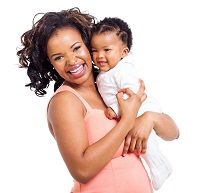Article
Maternal Depression Linked to Offspring Psychotic Experiences
Author(s):
Maternal antenatal depressive symptoms also linked to offspring depression at age 18.

New research shows the link between maternal perinatal depression to the psychotic experiences of offspring.
A team, led by Ramya Srinivasan, BMBCh, Division of Psychiatry, Faculty of Brain Sciences, University College London, examined whether there is a link between maternal antenatal or postnatal depression and offspring psychotic experiences at 18 years old.
There is evidence showing maternal depression in the perinatal period having an adverse effect on a number of early childhood outcomes, increasing the risk of offspring depression during adolescence.
However, the link between maternal depression during the perinatal period and offspring psychotic experiences has not been previously studied.
In the longitudinal study, the investigators used data from the Avon Longitudinal Study of Parents and Children (ALSPAC)—a prospective birth cohort with 14,541 pregnant women with an estimated delivery data between April 1991 and December 1992.
The University College London team used the data from 3067 offspring with available data on maternal perinatal depression and offspring psychotic experiences at age 18.
The team measured perinatal depression using the Edinburgh Postnatal Depression Scale (EPDS). They also measured offspring psychotic experiences at 18 years of age using the Psychosis-Like Symptom Interview.
Only offspring of mothers with complete data on maternal perinatal depression measures and complete data on outcome (psychotic experiences) and confounding variables were included in the final analysis.
The investigators used logistic regression to identify associations between maternal depression, both antenatal and postnatal, and offspring psychotic experiences at age 18. They also used biprobit regression to model the association between maternal antenatal depression and the 2 offspring outcomes (psychotic experiences and depression) at 18 years of age jointly.
Overall, maternal antenatal depressive symptoms were linked to offspring psychotic experiences at 18 years of age, with an unadjusted odds ratio (OR) of 1.38 (95% CI, 1.18-1.61; P = 0.0001).
After adjusting for confounders, the investigators found an OR of 1.26 (95% CI, 1.06-1.49; P = 0.074).
Maternal antenatal depressive symptoms were linked to both offspring psychotic experiences at age 18 (n = 2830; OR for a 5-point increase in EPDS score, 1.32; 95% CI, 1.16—1.51; P <0.0001) and offspring depression at 18 years (OR for a 5-point increase in EPDS score, 1.18; 95% CI, 1.03—1.34; P = 0.016).
However, from joint modeling, there is no evidence showing the association between maternal antenatal depression and offspring psychotic experiences differed in strength compared with offspring (P = 0.19).
“The offspring of mothers who experience depression in the perinatal period are more likely to report psychotic experiences at 18 years of age,” the authors wrote.
“If the association is found to be causal, it would strengthen the case for identifying and treating maternal depression during and after pregnancy.”
There is increasing evidence showing that psychosis is best viewed as a continuum and that psychotic experiences that do not meet the criteria for psychotic disorders are much more common in both the adolescent and adult populations than previously reported.
The study, “Maternal perinatal depressive symptoms and offspring psychotic experiences at 18 years of age: a longitudinal study,” was published online in The Lancet Psychiatry.





